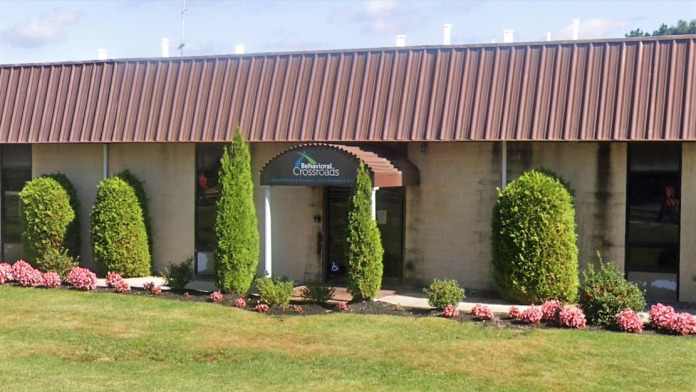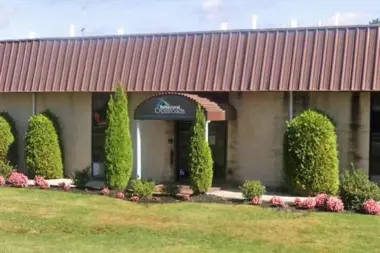God AWEUL PLACE! incompetent owner, poorly educated and trained counselors. Supervisor is SHADY! Owner is cheap, all about just making money. If you really want help, STAY AWAY!!!!!
About Intervention Specialist
Intervention Specialist is a drug and alcohol rehab facility located in a commercial district of Elizabeth, New Jersey. They treat people with alcohol and substance use disorders. They also treat those with concurring mental health disorders. They take Medicaid, private insurance, and self-pay.
Evals with Multiple Tracks
They give you an assessment when you come in. Group and individual therapy are their main modes of treatment. But, they also have a trained staff that can provide medication assisted treatment (MAT) if you need it.
Some rehabs require a mental health examination and drug test before you can work for them. This facility offers fitness for duty examinations.
They have both an intensive outpatient treatment program (IOP) in which you will come in several times a week and a standard outpatient program in which you will go in for treatment once a week. They also offer a partial hospitalization program (PHP) in which you will come in for a full day of treatment and go home at night.
One thing I like about this place is that bilingual services are offered. If you speak Spanish, they can accommodate you.
Approaching with Advisement
This company believes in getting at the root causes of substance use issues. They use a combination of emotionally supportive therapy and education. They provide 12 Step groups for peer support as well.
They have a medication education group, which is good for clients who may have become addicted to prescription drugs. They will teach you how to avoid misusing substances and about the effects of drugs and alcohol on your body.
Domestic violence therapy groups are also available. In some cases, domestic violence is the result of substance use. In other cases, people who are victims of domestic violence may turn to substances for comfort. These groups will teach you coping mechanisms for dealing with tense situations.
Latest Reviews
Rehab Score
Gallery


Other Forms of Payment
Self-pay involves paying for treatment out of your own pocket. You can use savings or credit, get a personal loan, or receive help from family and friends to fund your treatment. If you don't have insurance or your insurance plan doesn't cover a specific program, self-pay can help ensure you still get the care you need.
Medicaid is a state based program that helps lower-income individuals and families pay for healthcare. Medicaid covers addiction treatment so those enrolled can use their coverage to pay for rehab. When a program accepts Medicaid the client often pays very little or nothing out of their own pocket.
Addiction Treatments
Levels of Care
Intervention services helps family or friends of addicts stage an intervention, which is a meeting in which loved ones share their concerns and attempt to get an addict into treatment. Professional intervention specialists can help loved ones organize, gather, and communicate with an addict. They can guide intervention participants in describing the damage the addict's behavior is causing and that outside help is necessary to address the addiction. The ideal outcome of an intervention is for the addict to go to rehab and get the help they need.
Completing a drug or alcohol rehab program shouldn't spell the end of substance abuse treatment. Aftercare involves making a sustainable plan for recovery, including ongoing support. This can include sober living arrangements like halfway houses, career counseling, and setting a patient up with community programs like Alcoholics Anonymous (AA) or Narcotics Anonymous (NA).
Treatments
The goal of treatment for alcoholism is abstinence. Those with poor social support, poor motivation, or psychiatric disorders tend to relapse within a few years of treatment. For these people, success is measured by longer periods of abstinence, reduced use of alcohol, better health, and improved social functioning. Recovery and Maintenance are usually based on 12 step programs and AA meetings.
Drug rehab in New Jersey is the process of addressing the complex issues involved with addiction. Challenges are identified and addressed through individual and group counseling. Participants learn how to manage these issues without the use of substances.
Opioid rehabs specialize in supporting those recovering from opioid addiction. They treat those suffering from addiction to illegal opioids like heroin, as well as prescription drugs like oxycodone. These centers typically combine both physical as well as mental and emotional support to help stop addiction. Physical support often includes medical detox and subsequent medical support (including medication), and mental support includes in-depth therapy to address the underlying causes of addiction.
Substance rehabs focus on helping individuals recover from substance abuse, including alcohol and drug addiction (both illegal and prescription drugs). They often include the opportunity to engage in both individual as well as group therapy.
Programs
Adult rehab programs include therapies tailored to each client's specific needs, goals, and recovery progress. They are tailored to the specific challenges adult clients may face, including family and work pressures and commitments. From inpatient and residential treatment to various levels of outpatient services, there are many options available. Some facilities also help adults work through co-occurring conditions, like anxiety, that can accompany addiction.
Young adulthood can be an exciting, yet difficult, time of transition. Individuals in their late teens to mid-20s face unique stressors related to school, jobs, families, and social circles, which can lead to a rise in substance use. Rehab centers with dedicated young adult programs will include activities and amenities that cater to this age group, with an emphasis on specialized counseling, peer socialization, and ongoing aftercare.
Clinical Services
Research clearly demonstrates that recovery is far more successful and sustainable when loved ones like family members participate in rehab and substance abuse treatment. Genetic factors may be at play when it comes to drug and alcohol addiction, as well as mental health issues. Family dynamics often play a critical role in addiction triggers, and if properly educated, family members can be a strong source of support when it comes to rehabilitation.
Group therapy is any therapeutic work that happens in a group (not one-on-one). There are a number of different group therapy modalities, including support groups, experiential therapy, psycho-education, and more. Group therapy involves treatment as well as processing interaction between group members.
In individual therapy, a patient meets one-on-one with a trained psychologist or counselor. Therapy is a pivotal part of effective substance abuse treatment, as it often covers root causes of addiction, including challenges faced by the patient in their social, family, and work/school life.
Contact Information
333 N Broad St
Elizabeth, NJ 07208